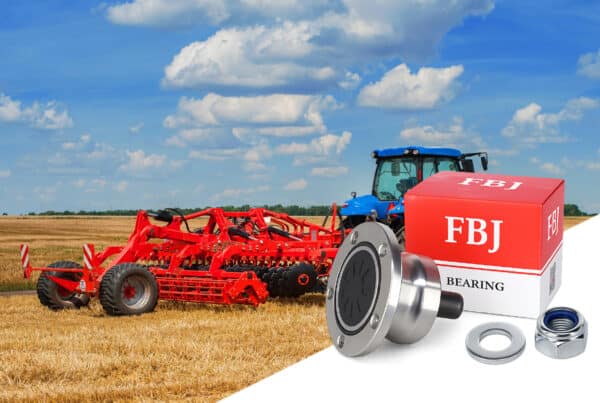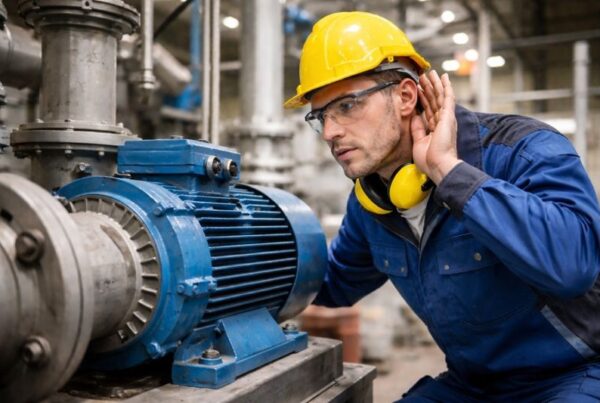Main types of FBJ stainless steel bearings
- Single-row deep groove ball bearings – The most common type in FBJ’s range. Their stainless steel construction makes them ideal in wet, dusty, or mildly acidic environments. Available with various seals (e.g., 2RS rubber seal, 2Z metal shield).
- Bearing units and housings – Pre-assembled, easy-to-install solutions that reduce downtime and simplify maintenance.
Material composition and specialized stainless steels
FBJ stainless steel bearings are manufactured using different steel grades to meet specific industrial requirements:
- Austenitic (304, 316) – Outstanding corrosion resistance, non-magnetic; widely used in food processing and marine environments.
- Martensitic (440C) – High hardness and load capacity; commonly applied in industrial machinery.
- Duplex (2205) – Exceptional strength and corrosion resistance; ideal for oil & gas or other highly demanding environments.
Stainless bearing steels can contain up to ~18% chromium, which significantly improves resistance to corrosion compared to conventional bearing steels. This is crucial in plants exposed to acidic or aggressive chemicals.
Common applications of FBJ stainless steel bearings
- Agricultural machinery – operating in wet, dusty, or chemical-treated environments.
- Food and pharmaceutical industries – where strict hygiene and corrosion protection are mandatory.
- Chemical industry – resistant to acidic and corrosive media.
- Mining and heavy industry – capable of operating in extreme dust and moisture.
- Energy sector – ensuring reliability and extended service life in demanding equipment.
Energy efficiency and low maintenance requirements
FBJ stainless steel bearings excel not only in corrosion resistance but also in low-friction performance. Reduced rolling resistance translates into higher energy efficiency and longer service life, directly lowering operating costs. Their stainless steel design also means lower maintenance needs – fewer lubrication cycles and reduced downtime throughout the bearing’s life cycle.
Why choose FBJ stainless steel bearings?
- Excellent corrosion resistance in wet, chemical, or dusty environments.
- Japanese engineering quality with decades of expertise.
- Outstanding cost-performance ratio – optimized lifecycle costs.
- Fast delivery from stock to minimize downtime.
- Wide product range to cover diverse industrial needs.
- Energy efficiency and low maintenance for sustainable operations.
FAQ – FBJ stainless steel bearings
How do FBJ bearings differ from premium brands like SKF or NTN?
FBJ’s greatest advantage lies in its cost-performance ratio. While premium brands often target extreme or niche applications, FBJ provides reliable stainless steel solutions for standard industrial environments with fast availability, minimizing production downtime.
How are FBJ stainless steel bearings identified?
The “SS” suffix (e.g., 6203 2RS SS) designates stainless steel. Seals follow industry standards: 2RS (rubber seal), 2Z (metal shield), NR (snap ring groove). The C3 suffix indicates internal clearance optimized for higher speeds or temperatures.
What should be considered during installation and operation?
A clean assembly environment, proper fits, and the use of anti-corrosion lubricants are essential. In wet or acidic conditions, regular inspection and re-lubrication will greatly extend bearing life.
Where are FBJ stainless steel bearings recommended, and where not?
Recommended for agriculture, food industry, chemical plants, energy systems, and general industrial applications. Not recommended for ultra-precision or very high-load environments such as aerospace or specialized CNC spindle applications.



